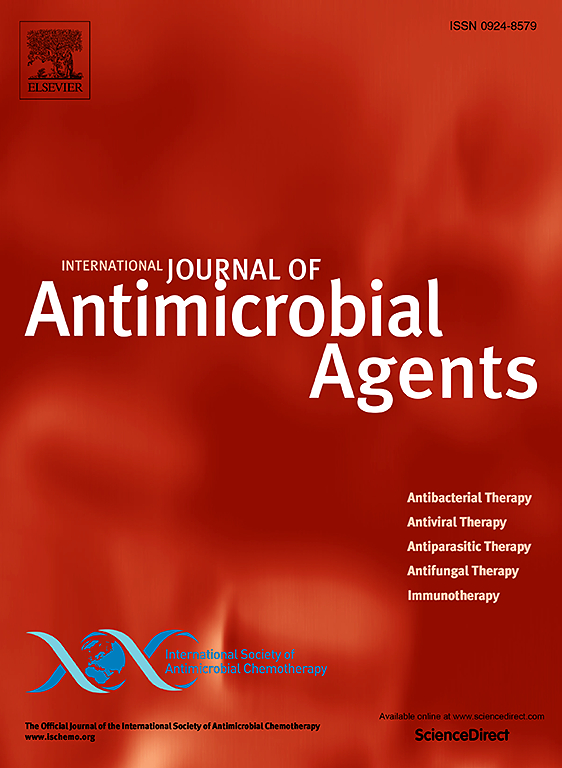Antibiotic shortages: An overview by the alliance for the prudent use of antibiotics (APUA)
IF 4.9
2区 医学
Q1 INFECTIOUS DISEASES
International Journal of Antimicrobial Agents
Pub Date : 2025-01-31
DOI:10.1016/j.ijantimicag.2025.107456
引用次数: 0
Abstract
Background
Antibiotics have been among the drugs most affected by shortages over the last two decades, with harmful consequences that may persist over years. This position paper was designed by the Alliance for the Prudent Use of Antibiotics (APUA), an international multidisciplinary consortium of experts dedicated to combating antimicrobial resistance.
Methods
We performed a narrative review to examine the main causes and impacts of antibiotics shortages, and to identify the solutions that may be proposed to prevent and mitigate this public health threat.
Results
The main causes of antibiotic shortages are failure to comply with good manufacturing practices, regulatory issues, unavailability of essential components, unanticipated discontinuation of production by a major supplier, unexpected surges in demand, and other logistical challenges. The main consequences include delays in appropriate treatment administration, overuse of broad-spectrum antibiotics with an increased risk of resistance, reduced efficacy, and increased toxicity due to sub-optimal antibiotics use, increased costs, medication errors, and prolonged or repeated hospital stays. Proposed potential solutions for antibiotic shortages include multidisciplinary international initiatives to foster market entry rewards, specific solutions for low-and-middle income countries (LMICs), strengthening supply chains, encouraging local production, implementing market entry incentives and facilitating the registration process for novel antibiotics and vaccines.
Conclusions
Antibiotics shortage severely impacts patient care and public health worldwide. The sustainability of both current and future antibiotics depends on the implementation of effective global health strategies and ongoing financial commitment. Immediate and decisive action is necessary to protect global health for future generations.
抗生素短缺:谨慎使用抗生素联盟(APUA)概述。
背景:抗生素是过去二十年来受短缺影响最大的药物之一,其有害后果可能持续数年。本立场文件由谨慎使用抗生素联盟(APUA)设计,该联盟是一个致力于抗击抗菌素耐药性的国际多学科专家联盟。方法:我们进行了一项叙述性综述,以检查抗生素短缺的主要原因和影响,并确定可能提出的解决方案,以预防和减轻这一公共卫生威胁。结果:抗生素短缺的主要原因是未能遵守良好生产规范、监管问题、基本成分无法获得、主要供应商意外停产、需求意外激增以及其他后勤挑战。其主要后果包括延误适当的治疗,过度使用广谱抗生素并增加耐药风险,由于使用次优抗生素而导致疗效降低和毒性增加,费用增加,用药错误以及延长或重复住院。针对抗生素短缺提出的潜在解决办法包括促进市场准入奖励的多学科国际举措、针对低收入和中等收入国家的具体解决办法、加强供应链、鼓励当地生产、实施市场准入奖励措施以及便利新型抗生素和疫苗的注册程序。结论:抗生素短缺严重影响全球患者护理和公共卫生。当前和未来抗生素的可持续性取决于有效的全球卫生战略的实施和持续的财政承诺。必须立即采取果断行动,为子孙后代保护全球健康。
本文章由计算机程序翻译,如有差异,请以英文原文为准。
求助全文
约1分钟内获得全文
求助全文
来源期刊
CiteScore
21.60
自引率
0.90%
发文量
176
审稿时长
36 days
期刊介绍:
The International Journal of Antimicrobial Agents is a peer-reviewed publication offering comprehensive and current reference information on the physical, pharmacological, in vitro, and clinical properties of individual antimicrobial agents, covering antiviral, antiparasitic, antibacterial, and antifungal agents. The journal not only communicates new trends and developments through authoritative review articles but also addresses the critical issue of antimicrobial resistance, both in hospital and community settings. Published content includes solicited reviews by leading experts and high-quality original research papers in the specified fields.

 求助内容:
求助内容: 应助结果提醒方式:
应助结果提醒方式:


